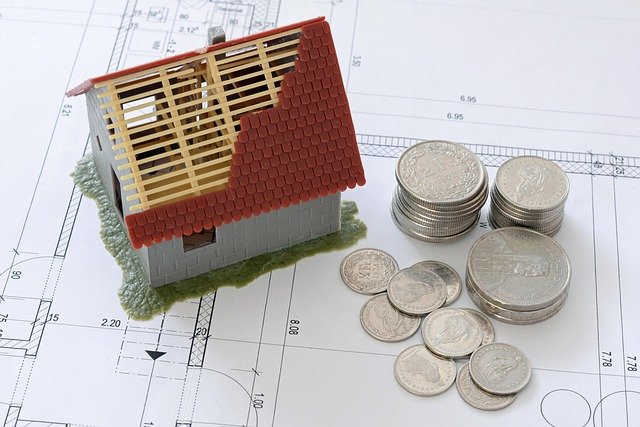Discover the value of your home with smart online tools
Determining a home's value is now easier thanks to online tools that provide instant insight into market value. Free and quick tools offer sellers a convenient starting point, but for an accurate estimate, professional appraisals are recommended. Factors such as location and energy-saving measures significantly impact value.

What tools are available to calculate the value of your home?
The digital landscape offers numerous tools to help homeowners determine their property’s worth. Automated Valuation Models (AVMs) form the backbone of most online valuation services, with platforms like Zoopla, Rightmove, and Nationwide’s House Price Calculator standing among the most widely used in the UK. These services typically require basic information such as your postcode, property type, number of bedrooms, and recent improvements.
More comprehensive tools include bank and building society calculators, which often incorporate mortgage-specific data alongside valuation estimates. For those seeking greater accuracy, hybrid valuation tools combine algorithmic calculations with limited human oversight, bridging the gap between fully automated estimates and traditional surveys. Some estate agents also offer their own proprietary online valuation tools that leverage their local market knowledge while providing the convenience of digital accessibility.
What are the benefits of online home valuation tools?
Online valuation tools deliver significant advantages to homeowners and property investors alike. The most immediate benefit is convenience – rather than arranging appointments with estate agents or surveyors, users can obtain estimates at any time from any location. This accessibility democratizes property information that was once gatekept by industry professionals.
Cost efficiency represents another major advantage, as most basic online valuation tools are available free of charge. This allows homeowners to monitor their property’s value regularly without financial burden. Additionally, these tools provide valuable educational insights, helping users understand how various factors affect property values in their area.
For those considering selling, online valuations offer a helpful starting point for pricing strategies without immediately committing to an estate agent. They also enable users to track value trends over time, providing context for making informed decisions about when to sell, refinance, or invest in home improvements that might boost value.
How accurate are online home value assessments?
The accuracy of online valuation tools varies considerably depending on several factors. Generally, these tools achieve greater precision in areas with high property turnover and standardized housing, where abundant comparable sales data exists. Conversely, accuracy diminishes for unique properties, homes in low-transaction areas, or recently renovated houses that algorithms cannot fully account for.
Most reputable online valuation tools claim accuracy within 5-15% of actual market value, though this range can widen significantly in certain circumstances. Physical appraisals conducted by qualified surveyors typically deliver more precise valuations because they incorporate detailed property inspections and nuanced local market knowledge that algorithms cannot replicate.
Users should approach online valuations as useful estimates rather than definitive figures. The most reliable strategy involves comparing results across multiple platforms and supplementing digital valuations with professional opinions, especially for high-stakes decisions like setting asking prices or securing financing.
What factors influence the estimated home value?
Numerous variables contribute to property valuations, with location typically wielding the strongest influence. Proximity to amenities, school catchment areas, transport links, and neighborhood desirability significantly impact prices. The property’s physical characteristics – including size, number of bedrooms and bathrooms, layout, and architectural style – form another crucial category of valuation factors.
Condition plays a pivotal role, with well-maintained properties and those featuring modern upgrades commanding premium prices. Recent renovations, energy efficiency improvements, and extensions can substantially boost valuations, though their impact varies by market. External economic factors, including interest rates, employment levels, and housing supply also influence broader market conditions that affect individual property values.
Market dynamics such as seasonal fluctuations, buyer demand, and local development projects create temporal variations in valuation. Most sophisticated online tools incorporate these diverse factors into their algorithms, though they inevitably miss property-specific nuances that human appraisers would identify through physical inspection.
Is property value public information and how is it used?
In the UK, certain property value information is publicly available through the Land Registry, which records the sale prices of properties. This data becomes public record approximately one month after completion and can be accessed by anyone. However, this represents historical transaction data rather than current valuations, and details about property conditions or specific features remain private.
This public information serves multiple purposes. Lenders utilize it for mortgage decisions, local authorities reference it for council tax bands, and property researchers analyze it to identify market trends. Online valuation tools themselves rely heavily on this public data, combining it with their proprietary algorithms to generate estimates.
Privacy considerations do exist, as some homeowners prefer not to have their property’s value widely known. However, the transparency provided by public records generally benefits the market by supporting informed decision-making and reducing information asymmetry between buyers and sellers.
For homeowners, understanding which aspects of their property’s value are public knowledge helps in making strategic decisions about improvements, timing of sales, and pricing strategies in a market where information accessibility continues to transform traditional real estate practices.
Property values remain central to many important life decisions, from refinancing options to retirement planning. As online valuation tools continue to evolve with more sophisticated data analysis capabilities, they increasingly serve as valuable starting points for property-related decisions, though the expertise of professional valuers remains irreplaceable for high-stakes transactions and unique properties.




